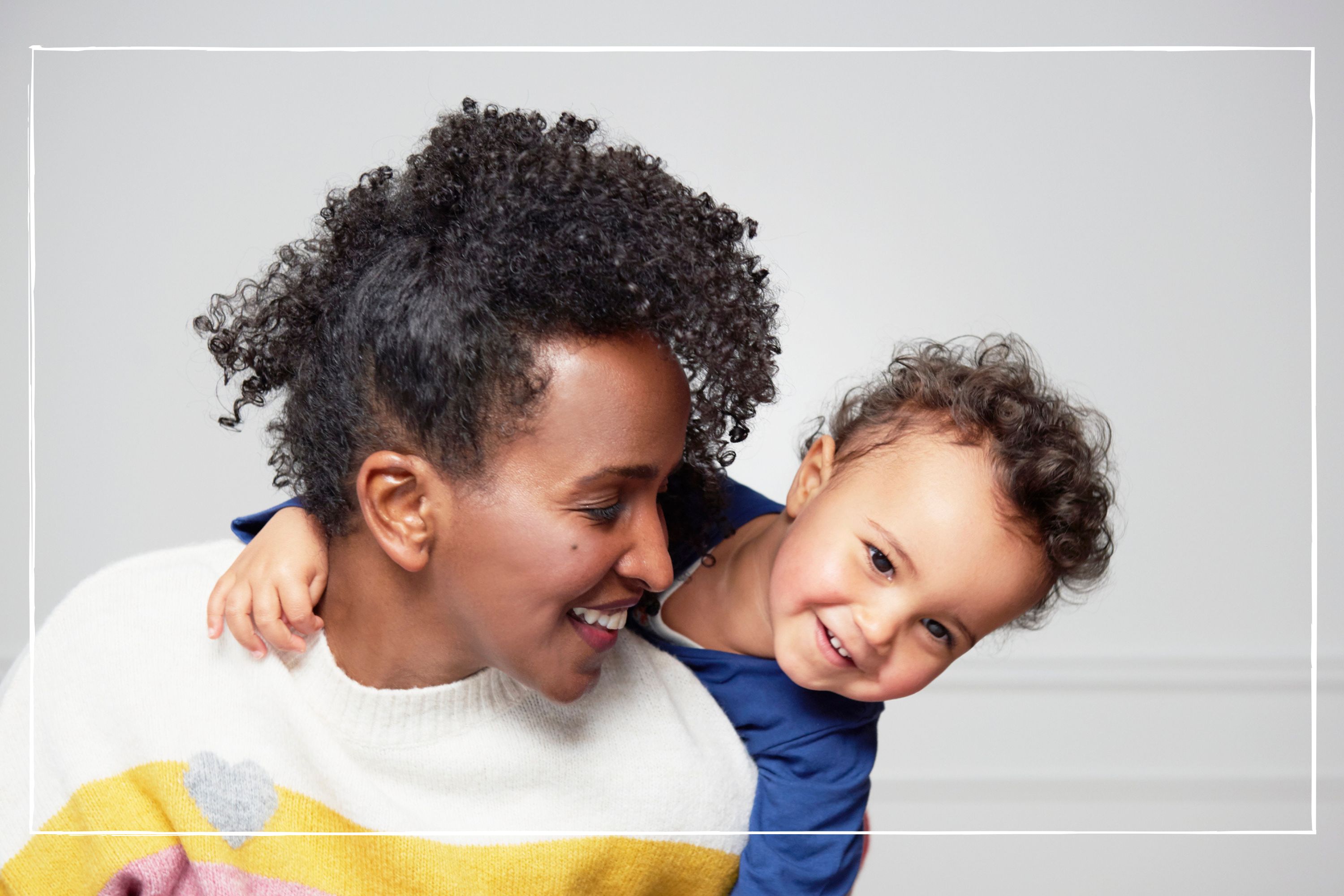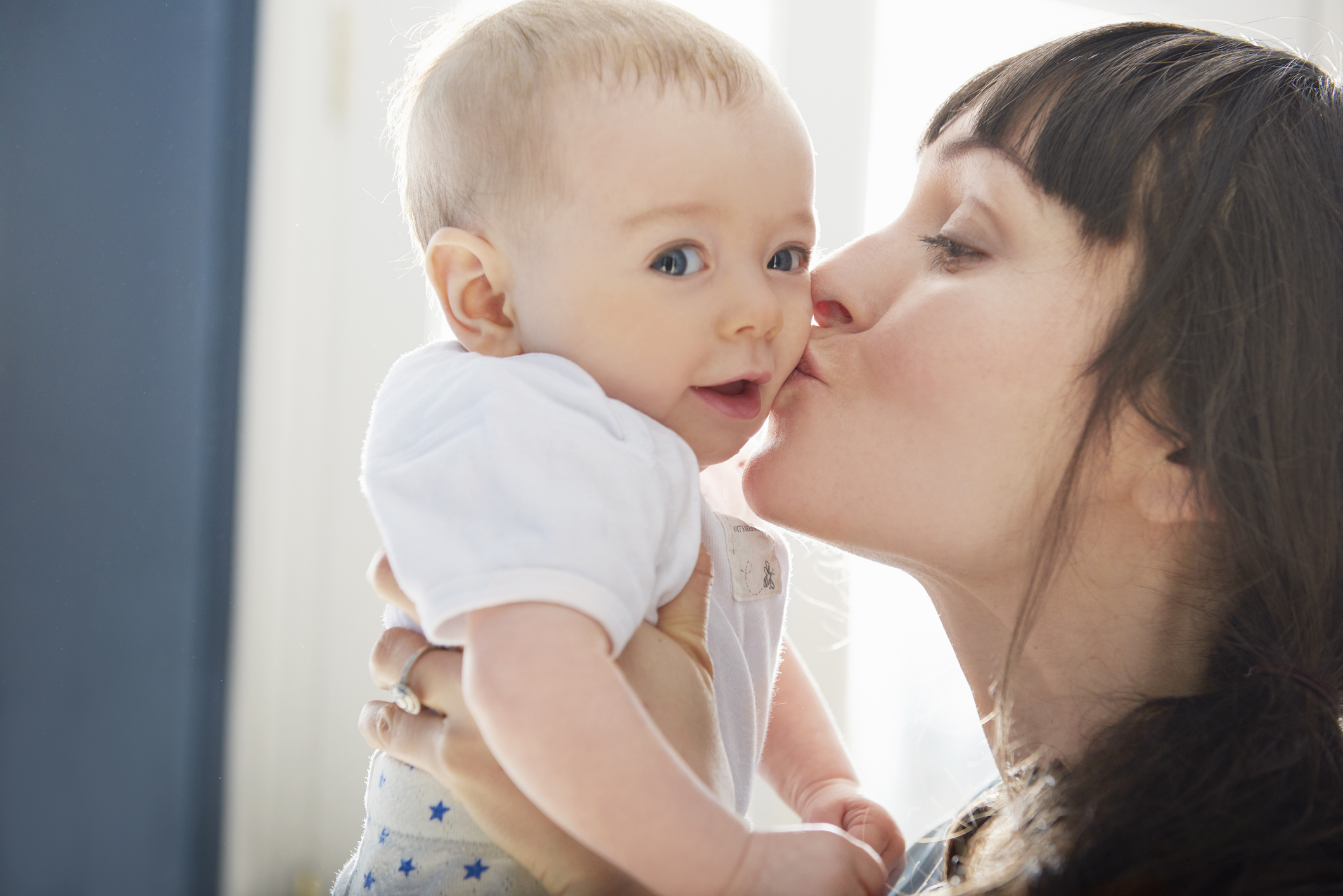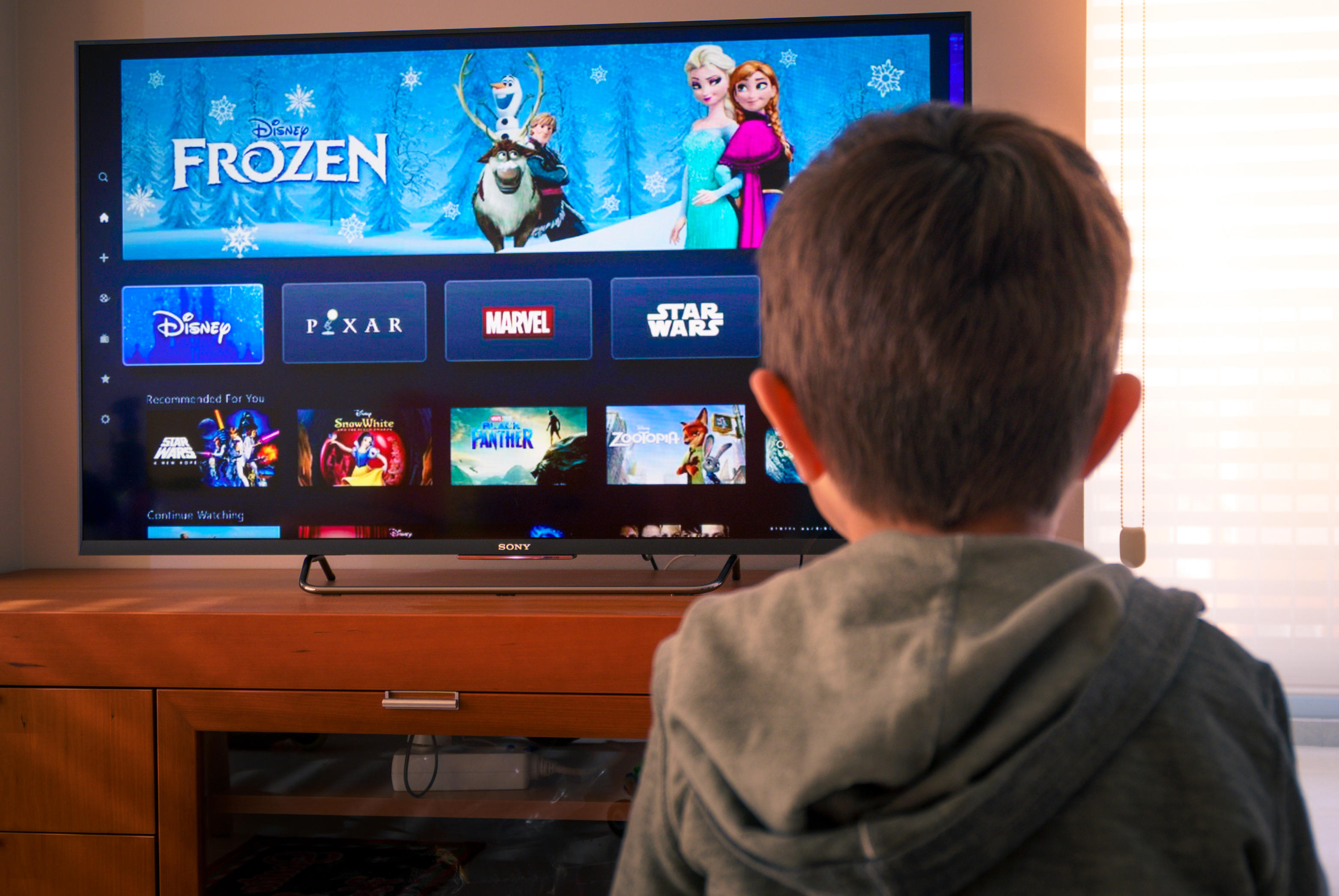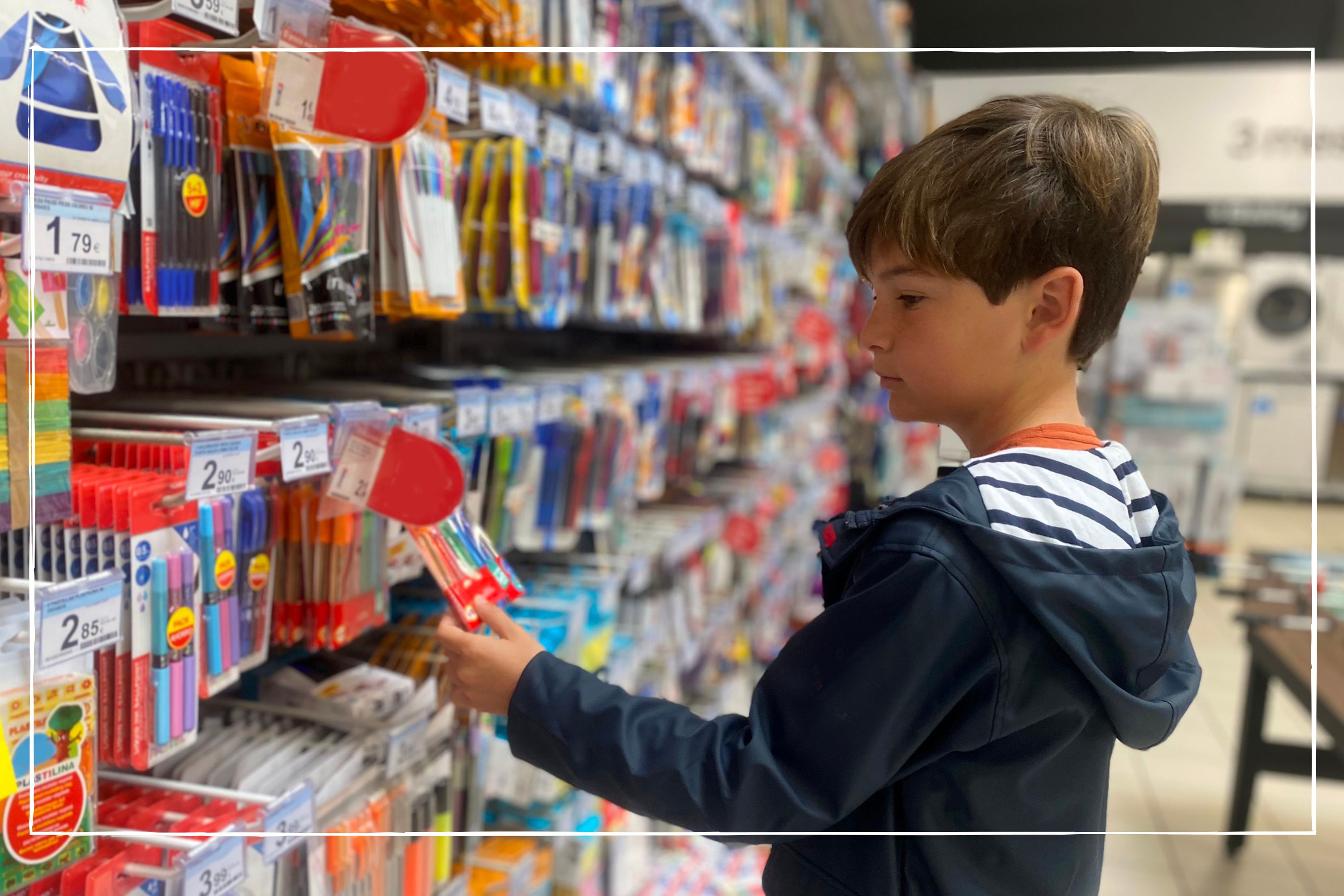How much does it cost to raise a child in 2025? Plus how to keep it affordable
How much does it cost to raise a child is an important question to ask as the cost of living crisis continues to bite


How much does it cost to raise a child is a question you might be asking yourself if you’re planning to start or expand your family in the near future.
High inflation means that the cost of everything from food to energy bills has increased, while average childcare costs in the UK are also soaring, making the cost of raising a child increasingly expensive, especially as they grow and you factor in the cost of wrap around care. But there’s a whole host of other costs you’ll need to factor in too throughout your child's life. This could be anything from a breast pump or the best pram to childcare, food, clothes, and tech. Moreover, if you are thinking about reducing how much you work in order to look after your child, then you'll need to consider the impact of the motherhood penalty on your future finances.
Sue Learner, editor of daynurseries.co.uk, says: “The cost of raising a child has reached its highest ever level, with the biggest cost being childcare and housing.
"Parents are also facing higher living costs with higher interest rates for mortgages and increased rent rates. Similarly, food and energy bills have been hit by inflation.
“Having children brings a huge amount of joy to parents as well as stresses and strains caused by tiredness and financial worries. It is good then to be aware of all the help and subsidies on offer to help with the costs of raising a child.”
How much does it cost to raise a child in 2025?
It currently costs an average of £202,660 to raise a child to the age of 18, according to digital wealth manager Moneyfarm. That works out to be just over £11,000 a year, or £938 a month.
However, as costs are increasing, this figure is expected to rise in line with general inflation.
GoodtoKnow Newsletter
Parenting advice, hot topics, best buys and family finance tips delivered straight to your inbox.
Costs also tend to fluctuate depending on the child’s age, as the table below shows:
| Between the following ages | Total Average Cost | Average monthly cost |
|---|---|---|
| Pregnancy | £3,530* | £392.20 |
| 0-3 yrs old | £44,097 | £918.69 |
| 4-5 yrs old | £23,149 | £964.54 |
| 6-8 yrs old | £29,590 | £821.94 |
| 9-11 yrs old | £27,847 | £773.53 |
| 12-14 yrs old | £24,656 | £684.89 |
| 15-18 yrs old | £49,791 | £1,037.31 |
| Total average costs from pregnancy to 18 years old | £202,660 | £938.24 |
*Includes buying items such as a cot, pram and car seat.
The early years can be a particularly expensive time due to additional one-off and ongoing costs. Community manager at childminder agency tiney, Lisa Holmes, explains: “The first few months of a child’s life require a lot of first-time purchases – from prams, to cots to car seats – as well as ongoing expenses like food, nappies and clothes.
“Then, once a child passes their first birthday, many parents will be starting to think about childcare, which can be difficult to navigate given that under-3s don’t qualify for 30 hours free childcare.”
The average cost of a full-time place at nursery for a child under the age of two sits at just over £14,000, according to research by children’s charity Coram (but remember you may qualify for help with childcare costs). But while costs drop once children start school, they peak again between the ages of 15 and 18 due to increased spending on holidays, outings, food, clothing and tech.

Child raising cost breakdown
- Food: The amount spent on food becomes more expensive as a child gets older, increasing from an average of £2,700 between the ages of 0 to 3 (£675 per year), to an average of £9,959 between the ages of 15 to 18 years old (£2,489 a year).
- Clothing: By the time the child turns 18, a total of £11,554 will have been spent on clothing, according to the Moneyfarm research.
- Toys and tech: Parents can expect to spend an average of £3,850 on toys from birth to 11 years of age. Around £2,000 is spent on computers, laptops, tablets, games consoles and smartphones from the age of 6 years to 18.
- Activities: Parents spend an average of £3,145 on enriching activities for their children, such as taking them to the theatre and cinema, while sports clubs and classes will cost an average of £14,500 from the age of four years old.
How much does it cost to raise a child in the first year?
“In the first year of raising a child you can expect to spend around £11,500,” says Chris Rudden, head of UK investment consultants at Moneyfarm.
However, exact costs will depend on whether you need to buy everything from scratch. Families that have more than one child are likely to be able to reduce some of these costs, as items such as cots, prams, stair gates, high chairs and car seats can be reused rather than bought again. Certain items such as clothes can also be reused for second and third children.
It’ll also depend on how soon you need childcare, if you need childcare at all.

How much should I budget each month to raise a child?
How much you should budget for each month will depend on the age of your child, but on the whole you could be looking at around £700 to £1,000 a month.
Remember that costs will drop once your child qualifies for free childcare and again when they start school.
Parents of three- and four-year-olds get up to 30 hours of free childcare per week for 38 weeks of the year, although you might still need to pay for items such as food and nappies. Be aware that you get the free hours from the term after your child turns three and not on their third birthday.
How can I make raising a child more affordable?
As well as looking for ways to reduce your childcare costs, whether that’s claiming free hours, using tax-free childcare, or asking grandparents to help, there are a number of other steps you can take to cut the cost of raising a child.
Buy second-hand or borrow from friends
Use sites like Vinted, Facebook Marketplace and eBay to buy equipment and clothing second-hand where possible and sell on anything you no longer need. Alternatively, borrow or buy from friends where you can.
But be mindful about buying things like car seats or prams second-hand where you don't know how they have faired - you'll miss out on any product guarantees so if it's faulty in some way, you'll likely be left out of pocket.
Claim benefits and grants
There’s a number of benefits and grants you might be entitled to. Child benefit, for example, is a payment from the government to help families with the cost of raising children. You’ll receive £21.80 per week for your first child and £14.45 per week for any subsequent children.
If you’re pregnant or you have a child under the age of four, you might also be eligible for the Healthy Start Scheme. This is a government initiative that gives you £200 a year for all the essentials you need for your baby.
Then there’s the Sure Start Maternity Grant which offers a one-off payment of £500 to help with new parent costs. You’ll need to be on certain benefits, such as universal credit, to qualify.
Save on your food shop
From hunting out the cheapest supermarket to using supermarket loyalty cards, there are plenty of ways you can cut your food shop and save money.
A spokesperson from life insurance broker Reassured says: “Plan your meals in advance and buy in bulk. Consider meal prepping on weekends to save time and money during the week.”
Look for free or cheap activities
Many libraries have free singing groups for babies and toddlers (plus you’ll have the bonus of being able to borrow books), while websites such as daysoutwiththekids.co.uk and VisitEngland can help you to find cheap activities near you.
Raising kids is an expensive endeavour, but making sure they're taken care of after you die will be high priority for many. As much as no-one likes to think about what happens when they die, it's crucial when you become a parent. Knowing how to write a will, and what it should include is key, but make sure you know what you should never put in a will too.

Mum of two, Rachel is a freelance personal finance journalist who has been writing about everything from mortgages to car insurance for over a decade. Having previously worked at Shares Magazine, where she specialised in small-cap stocks, Rachel developed a passion for consumer finance and saving money when she moved to lovemoney.com. She later spent more than 8 years as an editor at price comparison site MoneySuperMarket, often acting as spokesperson. Rachel went freelance in 2020, just as the pandemic hit, and has since written for numerous websites and national newspapers, including The Mail on Sunday, The Observer, The Sun and Forbes. She is passionate about helping families become more confident with their finances, giving them the tools they need to take control of their money and make savings. In her spare time, Rachel is a keen traveller and baker.
-
 How to save money: 28 family-friendly money-saving tips for mums and dads
How to save money: 28 family-friendly money-saving tips for mums and dadsUnderstanding how to save money is key to limiting the impact of rising costs as much as possible
By Sarah Handley Published
-
 14 hidden benefits of your Amazon Prime membership
14 hidden benefits of your Amazon Prime membershipWe reveal the less-obvious perks of a Prime membership that will help you get the most value out of your subscription fee
By Rachel Wait Published
-
 14 surprising ways to spend your Tesco Clubcard vouchers - from restaurants and cinema passes to mini breaks and Disney+
14 surprising ways to spend your Tesco Clubcard vouchers - from restaurants and cinema passes to mini breaks and Disney+Tesco Clubcard vouchers can help you cut the cost of everything from groceries and travel to days out and cinema tickets
By Heidi Scrimgeour Published
-
 How to get Disney+ for free and save up to £79.90 a year
How to get Disney+ for free and save up to £79.90 a yearEven though the streaming giant ended its free trial offering, there are still multiple ways you can get Disney+ for free for up to 12 months
By Sarah Handley Published
-
 Parents of teens who have just taken their GCSEs urged to check child benefit status ahead of August deadline
Parents of teens who have just taken their GCSEs urged to check child benefit status ahead of August deadlineWith a child benefit deadline looming, some parents could see their payments reduced or stopped altogether - here's why
By Sarah Handley Published
-
 Parents should hold off buying this back to school staple 'as close to their first day as possible', says retailer
Parents should hold off buying this back to school staple 'as close to their first day as possible', says retailerWith parents turning their attention to kitting their kids out for the new school year, research suggestions which items should be left until the last minute
By Sarah Handley Published
-
 7 ways to save on back to school essentials, as its revealed parents will spend £2.3 billion in 2024
7 ways to save on back to school essentials, as its revealed parents will spend £2.3 billion in 2024We share ways you can get your child all the bits and bobs they need for the new school year, without breaking the bank
By Sarah Handley Published
-
 What day is child benefit paid around the bank holiday? Everything parents need to know
What day is child benefit paid around the bank holiday? Everything parents need to knowKnowing which day child benefit is paid when it comes to the bank holiday can help families plan their budgets accordingly
By Sarah Handley Published